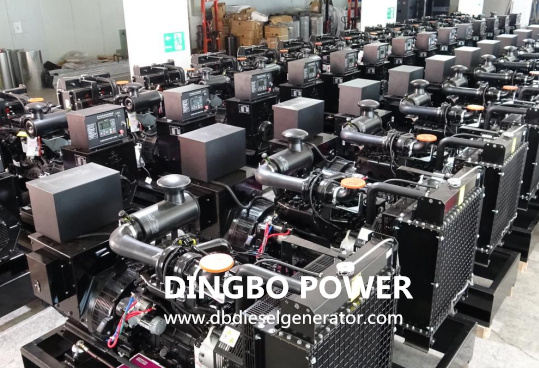Many users don't follow the operational procedures when using diesel generator sets, which will affect the normal operation and lifespan of generators. To help you out with this, here are 7 common mistakes to avoid when using diesel engine generators.
1. Loading without prelubrication and warmup after cold starts on diesel generators
Cold starting a diesel generator without prelubrication and warming up can lead to premature failure or more friction and wear on important parts. To ensure smooth generator startup and operation, let the diesel engine run at idle speed for a period of time to heat up and then turn it into normal operation when the oil temperature becomes normal and the oil supply is sufficient. Avoid pressing the accelerator hard after cold starting the generator, this may damage the machine.

2. Adding coolant improperly
Before starting the diesel generator, ensure that there is enough coolant on the reservoir and do not add hot water immediately. Before adding coolant, make sure that the generator is cooled down. Adding coolant to critical components such as cylinder liners and cylinder heads which have become hot may cause cracking or deformation to these parts. Moreover, adding hot water up to 100°C to the interior of the engine which is at a lower temperature may also cause damage to cylinder heads and the body of the machine. You should add the coolant when the temperature drops to 60~70°C. Please be noted that insufficient coolant, overheated coolant or engine oil will cause the over temperature of the unit when starting the diesel generator. This will also affect the combustion and the fuel injector may fail to work properly.
3. Not adding the generator oil as required
Some users top up engine oil when the engine is running, which may lead to many problems. Keep in mind that following your generator owner’s manual is crucial and you can find specific steps on a generator oil adding or change on your model in the manual. When starting the generator, do not refuel when the pressure reducing handle is in the position of working. You should put the accelerator handle in the position of refueling. After adding the engine oil, check the oil again using the dipstick. If the oil level is higher than it should be, carefully drain some oil until it is within the recommended range.
4. Not changing the oil, fuel and filters when needed
It's worth noting that your generator oil, fuel oil, filters and other components need regular changing to keep the internal parts functioning properly. For example, you may find it difficult to run your generator in extremely cold weather because the oil viscosity will increase and diesel can gel. Under the circumstances, you need to replace the old oil with a lower-viscosity oil and use a diesel fuel supplement. It’s also important to check other components like filters and spark plugs of your diesel generator regularly and replace any if necessary. Check your generator’s owner manual and it will tell you how often you will need to change these components.
5. Overusing glow plugs and flame preheating devices
Properly using the glow plugs and flame preheaters is a necessary step to ensure the safety of the diesel generator and extend its service life. These heating devices use heating wires as electric heating elements and they will consume large amount of electricity and generate a lot of heat when operating. Overuse of these heating devices may lead to rapid battery discharge. Meanwhile, it may damage the heating wires and affect the overall performance of the diesel generator. Thus, practically you should use glow plugs no more than one minute and use flame preheaters within 20 seconds to prevent the equipment from irreversible damage.
6. Overloading or underloading the generator
If you consistently run a diesel generator on a low load, problems such as carbon build up on the injectors will occur, which affect the battery and cooling system of the generator. In addition, excessive loads can also affect the stability of diesel genset and lead to a decreased lifespan. Running a generator at an excessive load can cause the generator to consume more fuel than it normally would and prolong the combustion in the cylinder, which may damage the cylinder head gasket. Therefore, it is important to monitor the load on a generator carefully and ensure the machine operates at proper load levels.
7. Frequent starting the diesel generator
Some users usually start the generator immediately when the initial start fails and repeat this again and again. Please avoid frequent starting the generator because it may damage the battery of the equipment. The time interval for the continuous start of the engine shall not be less than 5 seconds when running the engine on a low voltage and a high current. If you start the diesel generator unsuccessfully, start it again after 15 seconds. When encountering a start failure, you should figure out the causes and then start the machine in a proper way.
Diesel generators plays an important role in providing electricity during power outages. The common mistakes mentioned above may greatly affect the performance and lifespan of the generators. It’s recommended that you read the manual carefully and follow the operating procedures provided by the manufacturer when installing and running the generator. As a professional diesel generator manufacturer, Dingbo Power offers a wide range of generators and also provides planned maintenance and repair services. If you still have problems or need help choosing a generator that can perfectly suit your requirements, contact us now.
Comments
Post a Comment